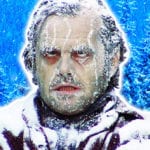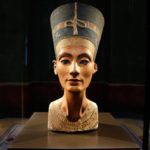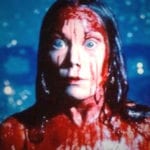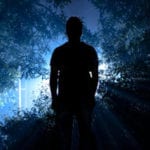 History
History  History
History  Health
Health 10 Everyday Activities That Secretly Alter Consciousness
 History
History Top 10 Historical Disasters Caused by Someone Calling in Sick
 Animals
Animals 10 New Shark Secrets That Recently Dropped
 Movies and TV
Movies and TV 10 Forgotten Realities of Early Live Television Broadcasts
 Technology
Technology 10 Stopgap Technologies That Became Industry Standards
 Weird Stuff
Weird Stuff 10 Wild Facts About Taxidermy That You Probably Didn’t Know
 Travel
Travel 10 Beautiful Travel Destinations (That Will Kill You)
 Miscellaneous
Miscellaneous 10 Modern Marriage Rituals Born from Corporate Branding
 Weird Stuff
Weird Stuff Ten Bizarre Visions of 2026 from Fiction
 History
History 10 “Modern” Problems with Surprising Historical Analogs
 Health
Health 10 Everyday Activities That Secretly Alter Consciousness
 History
History Top 10 Historical Disasters Caused by Someone Calling in Sick
Who's Behind Listverse?

Jamie Frater
Head Editor
Jamie founded Listverse due to an insatiable desire to share fascinating, obscure, and bizarre facts. He has been a guest speaker on numerous national radio and television stations and is a five time published author.
More About Us Animals
Animals 10 New Shark Secrets That Recently Dropped
 Movies and TV
Movies and TV 10 Forgotten Realities of Early Live Television Broadcasts
 Technology
Technology 10 Stopgap Technologies That Became Industry Standards
 Weird Stuff
Weird Stuff 10 Wild Facts About Taxidermy That You Probably Didn’t Know
 Travel
Travel 10 Beautiful Travel Destinations (That Will Kill You)
 Miscellaneous
Miscellaneous 10 Modern Marriage Rituals Born from Corporate Branding
 Weird Stuff
Weird Stuff Ten Bizarre Visions of 2026 from Fiction
10 Horror Movies That Have Sadly Never Been Made
The process of taking a movie from an idea in someone’s head to the screen is a long and arduous journey, one which is often not completed. Some films never make it past the initial pitch, some are scripted but never funded, and others make it pretty far into production—with actors hired and locations scouted—before being scrapped. Here are 10 horror movies that have sadly never made it to the screen—although there is still a glimmer of hope for a few of them.
Related: 10 Freaky Facts About Popular Horror Movies
10 Peter Jackson’s A Nightmare on Elm Street 6: The Dream Lover
Soon after releasing his first feature-length film, Bad Taste (1987), Peter Jackson took a stab at writing a script for the sixth Nightmare on Elm Street movie. The franchise had lost its way, leaning harder into comedy than horror, and Jackson, along with co-writer Danny Mulheron, planned to tackle this problem head-on in their meta revamp, subtitled The Dream Lover.
In Dream Lover, Freddy Krueger would no longer be feared, and the kids of Springwood would intentionally take sleeping pills to go into the Dream World and harass the now ridiculed killer. Freddy would then finally manage to kill someone and start regaining his power. New Line Cinema passed on the screenplay for unknown reasons, going with Michael De Luca’s script instead, which was released in 1991 as Freddy’s Dead: The Final Nightmare.[1]
9 Darren Bousman’s Wild West Leprechaun Movie
Darren Bousman is best known for his contributions to the Saw franchise, and for years, he has been passionately campaigning to make a film for the Leprechaun franchise. The titular character, first played by Warwick Davis in 1993, has gone on killing sprees in Vegas and even in space. In this film, Bousman wanted to take him to the Wild West.
“He’s gonna go back in time to the Colorado gold rush, and antics will ensue. I will only do it with Warwick Davis, and I will make this happen. I will will this into existence. I have willed every movie that I’ve wanted to do, whether it be a weird rock opera or going to Japan to do a TV series,” the director confidently asserted.
Bousman has been vocal about this idea since 2008 and has even tweeted Lionsgate, who own the franchise, but has so far been unsuccessful. Only time will tell whether this unmade horror-comedy flick will ever be brought to life. Let’s wish him Bousman luck.[2]
8 Bubba Nosferatu: Curse of the She-Vampires
The end credits of Don Coscarelli’s cult classic Bubba Ho-Tep (2002) declare that Elvis will return in Bubba Nosferatu: Curse of the She-Vampires. While this was only intended to be a joke, it might actually get made. Bruce Campbell, who played Elvis in the original, passed on the movie. Still, Paul Giamatti signed on to play Elvis’s manager, Colonel Tom Parker, believing the script to be “really, really good.”
Bubba Nosferatu would be a prequel and would focus on Elvis’s relationship with Colonel Parker, and, as expected from the title, there would be vampires aplenty. With Campbell out, Ron Perlman was cast as Elvis, but a lack of funding stalled all progress. “We’ll definitely get Bubba Nosferatu made. It’s just a question of when and where,” Giamatti declared in 2008.[3]
7 George A. Romero’s Resident Evil
In 1998, Japanese video game developer Capcom hired George A. Romero, the father of the modern zombie genre, to direct a live-action commercial for the second Resident Evil game, known as Biohazard 2, in Japan. Although only 30 seconds long, the advert led to Sony Pictures asking Romero to pen the upcoming film adaptation.
Romero’s script was relatively faithful to the plot of the first game, especially in comparison to the film that ended up being released in 2002. He focused on the characters Chris Redfield and Jill Valentine and featured a lot of the T-virus-created creatures, including zombie dogs, zombie sharks, Plant 42, and the giant snake. Capcom producer Yoshiki Okamoto has stated that the “script wasn’t good, so Romero was fired.” Still, there are many who wish they could see what Romero’s vision would have been.[4]
6 Freddy vs. Jason vs. Ash
After Freddy vs. Jason hit theaters in 2003, a sequel featuring Ash from the Evil Dead series was considered. It would have started with Freddy tormenting Jason as a disembodied entity and needing the Necronomicon from Evil Dead II (1987) to resurrect himself. The Book of the Dead had previously made a cameo appearance in Jason Goes to Hell (1993). Ash enters the picture by working at a local S-Mart and would end up besting both Freddy and Jason.
Freddy vs. Jason vs. Ash never made it past Jeff Katz’s initial treatment. In 2017, Robert Englund said he had been keen for it to happen but that “New Line Cinema was against it because I had just had my ass kicked by Jason,” and they didn’t want Freddy to look weak. Bruce Campbell was less enthusiastic, saying in a Reddit AMA that he was “not real interested in crossovers.” He also mentioned that “we couldn’t control any other character other than Ash” and “you’re splitting the proceeds three ways with partners you might not want.”
While the crossover never made it to the screen, it did get made as a comic book. Written by James Kuhoric and illustrated by Jason Craig, Freddy vs. Jason vs. Ash was published between 2007 and 2008, and then a sequel, subtitled The Nightmare Warriors, was released throughout 2009.[5]
5 Michael Myers vs. Pinhead
Another crossover that never happened was Michael Myers from the Halloween franchise fighting Pinhead from the Hellraiser franchise. Dave Parker first pitched the concept to Dimension, who at the time produced both franchises in the mid-1990s. His movie, called Helloween, was about a group of people attempting to destroy the Myers house on Halloween as Michael is making his way home, of course. Instead, they find the Lament Configuration and summon Pinhead. Although initially rejected, the success of Freddy vs. Jason convinced the production company that it could work.
Dimension reached out to the head honchos from each franchise, asking Clive Barker to write and John Carpenter to direct. Pinhead actor Doug Bradley explains that “Clive wasn’t interested in a mano-a-mano confrontation. He was interested in finding the places where the Hellraiser and Halloween landscapes might have crossed over.” However, producer Moustapha Akkad owned the rights to Halloween and opposed the project, stopping it in its tracks.[6]
4 Ridley Scott’s The Train
After the success of Alien (1979), director Ridley Scott and artist H. R. Giger teamed up again to create another sci-fi horror film called The Train. The script, originally titled “Dead Reckoning,” was written by Jim Uhls, who describes it as “Alien on a train.” He says the plot was about an altered life form getting loose “on a high-speed runaway underground train. The creature was a humanoid with a genetically-altered brain that was intended to be used as the ‘hard drive’ in an artificial intelligence project.”
Scott was interested in directing and called up Giger in 1988 to get started on concept art for the film. “I was enthusiastic about it and immediately accepted because a remarkable movie always originates from a director like Ridley Scott,” Giger says. The artist had already conceptualized a ghost train made of biomechanoid skeletons and saw this as a chance to bring it to life. Giger spent a couple of years creating art, but Scott abandoned the project after experiencing friction with producer Joel Silver.
The script was shopped around and underwent rewrites, which turned the creature into a super-adaptive killer humanoid and then an aggressive plant-based organism, but it was never made. Giger’s ghost train ideas were later used for the sci-fi horror movie Species (1995).[7]
3 House of Re-Animator
In the early 2000s, Brian Yuzna, the producer of Re-Animator (1985) and director of its two sequels, approached the original film’s director, Stuart Gordon, and co-screenwriter, Dennis Paoli, about an idea for the fourth installment. The central concept was that Herbert West would be brought to the White House to reanimate the recently deceased president of the United States. It was hoped that Jeffrey Combs and Bruce Abbott would return as West and Dan Cain, while William H. Macy was considered for the role of the president.
Paoli says that he, Yuzna, and Gordon went through multiple treatments while trying to get the movie made. It was originally meant to comment on the politics of the Bush Administration, but a more generic version, which didn’t target a specific President, was also written.
Paoli believes it didn’t get made for two reasons: “There was more production value, so you were going to need a bigger budget. So it was probably a harder film to put together, [budget-wise]. Plus, it’s got political content. A lot of people don’t want to touch that.” There were also plans for a film called The Island of Re-Animator, loosely based on H. G. Wells’s novel The Island of Doctor Moreau (1896), but it also failed to “animate.”[8]
2 Guillermo del Toro’s At the Mountains of Madness
Around 2011, Guillermo del Toro thought that his adaptation of H. P. Lovecraft’s novella At the Mountains of Madness (1936), which follows a team in Antarctica discovering ancient ruins and otherworldly horrors, was finally going to be made. “We thought we had a very good, safe package. It was $150 [million], Tom Cruise and James Cameron producing, ILM doing the effects,” del Toro said. However, Universal pulled out because they wanted it to have a PG-13 rating, and del Toro was committed to an R rating.
No studio has been willing to take a chance on del Toro’s Lovecraftian horror movie, but he is still hoping to get it made. In November 2022, he shared footage of a previously unseen CGI test, which gives an idea of the kind of tentacled creatures he would feature. Shortly afterward, he also revealed that he’s been thinking about filming it as a stop-motion animation.[9]
1 John Carpenter’s Creature from the Black Lagoon
With a string of successful movies under his belt, John Carpenter was offered the pick of Universal’s pictures in 1992. And he knew exactly what he wanted to make: Creature from the Black Lagoon. The script for the reboot had been written 10 years earlier by Nigel Kneale when it was envisioned as a 3D movie before being abandoned. Carpenter brought in screenwriters Timothy Harris and Herschel Weingrod, known for their comedy work, to do rewrites.
Carpenter wanted the movie to mix together the idea of “the Creature being the missing link between man and fish” with a storyline about “creationist scientists, who are trying to prove that man walked with dinosaurs 10,000 years ago.” He was planning to give it a “Lovecraftian feel,” like “The Shadow Over Innsmouth—fish mating with humans.”
He also brought in Rick Baker, who won an Oscar for his makeup effects on An American Werewolf in London (1981), to design the creature. Maquettes of the Gill-man were created, but the film never got the green light from Universal, likely partly due to Carpenter’s Memoirs of an Invisible Man (1992) flopping and giving the studio cold feet.[10]








